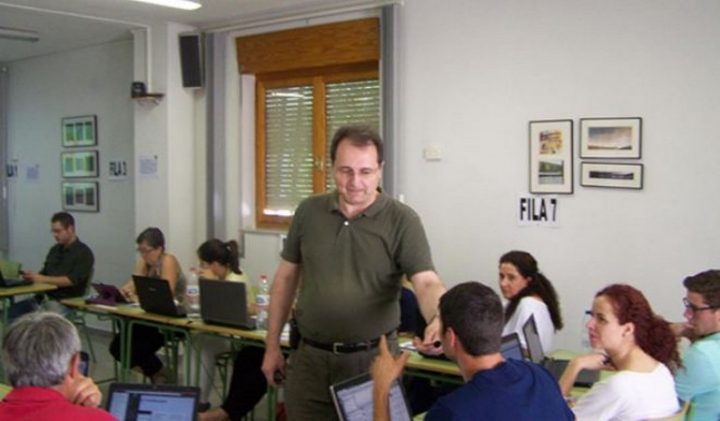Professor Tiberio Feliz Murias runs the Centre for the Care of Disabled University Students (UNIDIS) at the National University of Distance Education (UNED), in Madrid, Spain, and teaches at the Faculty of Educational Sciences. He is a natural born facilitator and, when you get to know him, you can understand why he runs this service that this Spanish public university has developed so effectively. He will participate as a speaker at the European Humanist Forum 2018.
What are the social repercussions of your UNIDIS project?
The centre is celebrating its tenth anniversary this year and is at a very advanced stage in the institutional development of UNED’s inclusion policy. Every year our university receives about 8,000 students with disabilities, most of them in official studies and we were the first Spanish university to introduce free tuition for people with disabilities in 1995. We have developed several lines of action to promote fairness so that these students can develop their academic life like any other person.
We’re also concerned about their employability and we work with the entire university community, which is what makes this reality plausible. We certainly have challenges ahead of us, but we’ve come a long way in operationalizing the culture of inclusion.
What are these challenges you allude to?
Firstly, I would point to the achievement of ways of working based on universal design. If everything we do is properly designed, with the use of increasingly adaptive technologies, the need to adapt means and processes will be considerably reduced. In an environment with an inclusive culture in which every service and every person embraces their role and naturally carries out their facilitating activity, the protagonism of this type of service will diminish. We’ll see it as so normal that no one will question it. We will be surprised that one day this wasn’t the case.
You’re going to participate in the European Humanist Forum 2018, the motto of which is “What unites us towards the Universal Human Nation”. How do you analyse the current situation of the university with regard to these general objectives of the Forum?
The university has an important mission in terms of the generation of knowledge and the development of human well-being. The university should aim for universality, like science and knowledge. Too often valuable energies are still lost in infighting, but this controversy also stimulates creativity if we know how to channel it.
Do you see the university involved in the social advances demanded today by the intercommunicated world in which we live?
The university is like the society it develops in. Much has changed in its practical ways of working, if only because most of its inhabitants feel like citizens and have highly technological and intercommunicated lifestyles. It’s true that we keep some organizational and symbolic habits less up-to-date, but everything will work out. In time.
Does the university in general, and the Faculty of Education in particular, where you teach, consider education in terms of a conception of the human being? If so, what is this conception?
To say otherwise would be to ignore that everything we do with people always implicitly reflects a conception of them. The respect for plurality has perhaps led us to avoid explicit definitions and we avoid reflecting it in our organizational documents, but the truth is that we work from the maximum functional, political, cultural, etc. plurality. Some marginal practices should not become paradigms.
What does the Forum’s slogan “What unites us towards the Universal Human Nation” suggest or mean to you?
Social and political movements can only be consolidated if they assume plurality as an identity. In any sphere of life, it is important to highlight what unites in order to advance and this does not detract from the value of individuality, of singularity, of difference. In these times, of course, self-styled “developed” countries should also review their responses to the migration flows that are taking place. They should think more about what unites us as human beings, not so much about particular interests. After all, we are also at least partly responsible for the causes that produce them.










